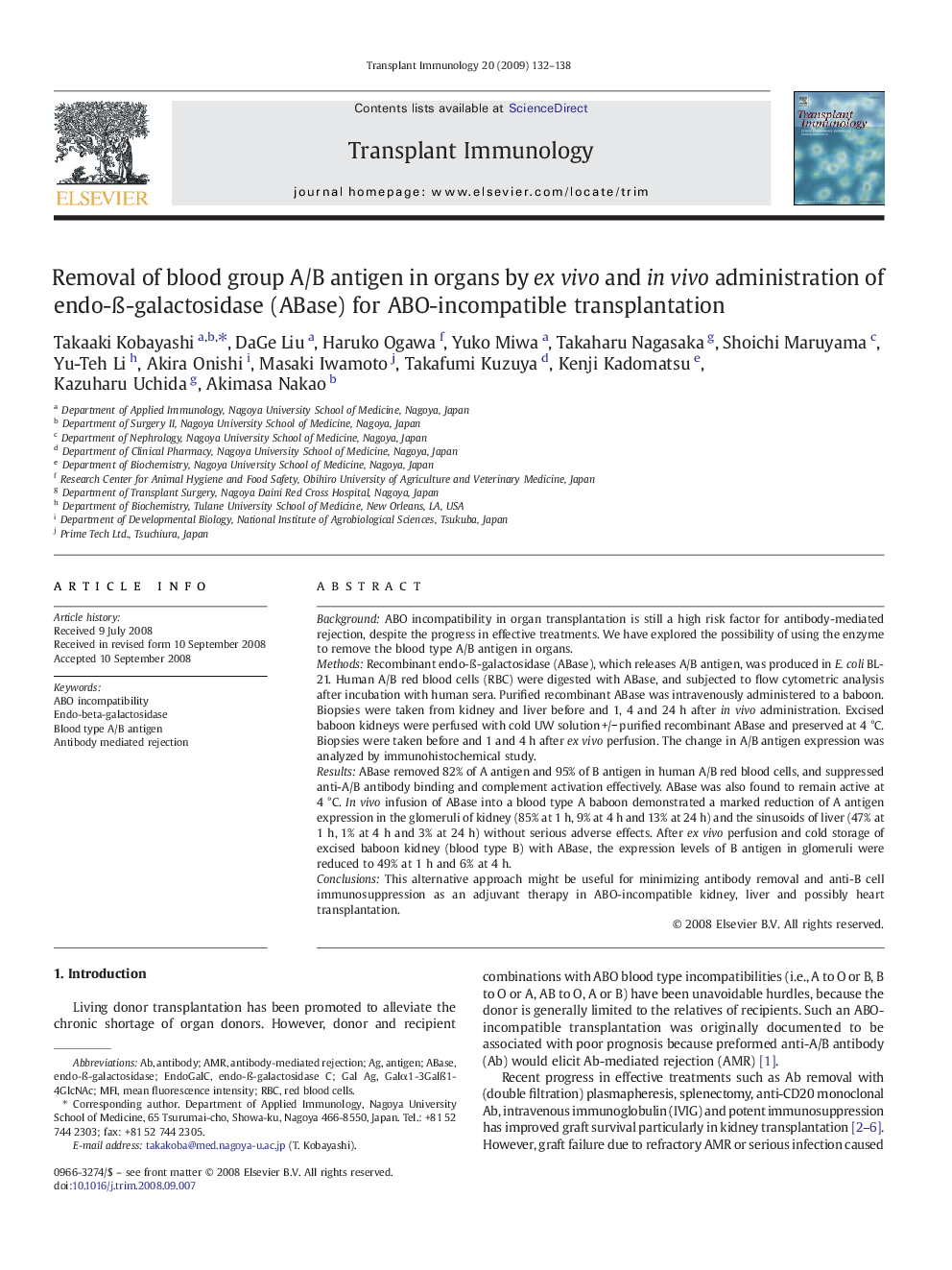| Article ID | Journal | Published Year | Pages | File Type |
|---|---|---|---|---|
| 3392446 | Transplant Immunology | 2009 | 7 Pages |
BackgroundABO incompatibility in organ transplantation is still a high risk factor for antibody-mediated rejection, despite the progress in effective treatments. We have explored the possibility of using the enzyme to remove the blood type A/B antigen in organs.MethodsRecombinant endo-ß-galactosidase (ABase), which releases A/B antigen, was produced in E. coli BL-21. Human A/B red blood cells (RBC) were digested with ABase, and subjected to flow cytometric analysis after incubation with human sera. Purified recombinant ABase was intravenously administered to a baboon. Biopsies were taken from kidney and liver before and 1, 4 and 24 h after in vivo administration. Excised baboon kidneys were perfused with cold UW solution +/− purified recombinant ABase and preserved at 4 °C. Biopsies were taken before and 1 and 4 h after ex vivo perfusion. The change in A/B antigen expression was analyzed by immunohistochemical study.ResultsABase removed 82% of A antigen and 95% of B antigen in human A/B red blood cells, and suppressed anti-A/B antibody binding and complement activation effectively. ABase was also found to remain active at 4 °C. In vivo infusion of ABase into a blood type A baboon demonstrated a marked reduction of A antigen expression in the glomeruli of kidney (85% at 1 h, 9% at 4 h and 13% at 24 h) and the sinusoids of liver (47% at 1 h, 1% at 4 h and 3% at 24 h) without serious adverse effects. After ex vivo perfusion and cold storage of excised baboon kidney (blood type B) with ABase, the expression levels of B antigen in glomeruli were reduced to 49% at 1 h and 6% at 4 h.ConclusionsThis alternative approach might be useful for minimizing antibody removal and anti-B cell immunosuppression as an adjuvant therapy in ABO-incompatible kidney, liver and possibly heart transplantation.
